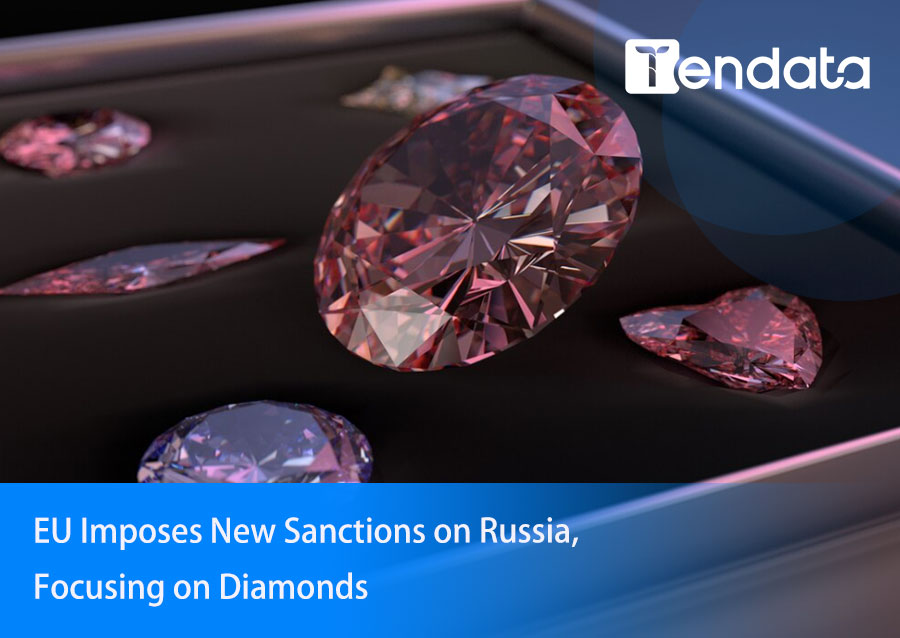 Trade Trends News
Trade Trends News
 20-12-2023
20-12-2023
· The plan focuses on a ban on imports of Russian-origin diamonds and imposes additional import and export bans on Russia.
· The plan also tightens compliance rules for purchases of Russian oil through the Group of Seven price-cap mechanism.

The European Commission said in a statement on Monday that the Council of the European Union has adopted a 12th sanction against Russia following final approval by Austria over the weekend.
It focuses on banning imports of diamonds originating in Russia and imposing additional import and export bans on Russia to combat sanctions circumvention and close loopholes.
The ban on direct purchases of non-industrial diamonds from Russia will begin on January 1, followed by a phased ban on indirect imports to be completed by September 1st.
The diamond ban will be coordinated with the Group of Seven (G7), which announced a similar ban earlier this month. The global natural diamond jewelry business is worth $87 billion.
Russian diamond producer Alrosa declined to comment on the 12th EU sanctions package.
Russia's diplomatic mission to the EU said the new EU sanctions showed the failure of punitive measures against Moscow.
"The Russian economy has not been 'torn to pieces', attempts to isolate us in the international arena, including the Brussels program, have failed miserably, and the goal of 'causing a strategic failure' has not yet been achieved. " the delegation said in a statement. The statement was posted online.
The Russian Foreign Ministry did not issue a statement, saying only that a response to the sanctions was forthcoming.
As Reuters previously reported, in an effort to stop Russia from maintaining its military hardware, the European Union is introducing a "Russia ban clause," which would require EU exporters to contractually prohibit the re-export of a range of products to Russia or their use in Russia. "sensitive goods and technologies."
It also tightens compliance rules for purchases of Russian oil through the G7 price cap mechanism.
However, EU countries have watered down initial proposals to ban the sale of old tankers to Russia or Russian-linked companies through a "notification" process.
The package includes a notification system for funds transferred outside the EU by Russian nationals residing in Russia or Russian entities established in the EU.
In addition, the package introduces a new ban on liquefied petroleum gas (LPG) imports, with a transition period of one year, as well as a list of metal products, including "pig iron and mirrors, copper and aluminum wires, foils, pipes and tubes". The total value is €2.2 billion ($2.4 billion) per year".
The plan also adds 140 individuals and entities to the list of those subject to the asset freeze, including participants in Russia's military and defense industries, IT sector, and private military companies.
Although the European Council announced its adoption of the program last week, Austria did not formally approve it until after its main bank, Raiffeisen, was removed from Ukraine's list of "international war sponsors".
The Ukrainian blacklist temporarily removed the bank pending discussions with the European Commission. The commission declined to comment on the matter Monday.
Greece similarly delayed an earlier package of sanctions, suspending the blacklisting of some of its companies. Two Greek shipping companies remain in the website suspension phase.
Category
Leave Message for Demo Request or Questions


 T-info
T-info T-discovery
T-discovery

 My
Tendata
My
Tendata Market Analysis
Market Analysis Customer
Development
Customer
Development Competitor
Monitoring
Competitor
Monitoring Customer Relationship
Customer Relationship





































































































































